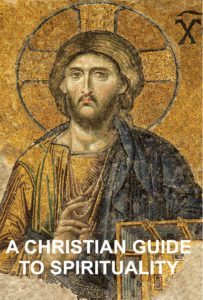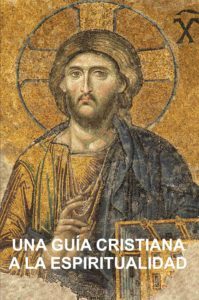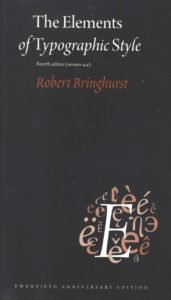Stephen W. Hiemstra's Blog, page 118
May 16, 2021
Gebetstag 26

Vor Stephen W. Hiemstra
Gnädiger Gott,
Gib uns die Demut, für unsere täglichen Bedürfnisse zu beten.
Gehe bei jedem Schritt mit uns.
Hilfe uns, unter allen Umständen zufrieden zu sein und deine Anwesenheit auch im Überfluss zu erkennen.
Mögen wir deinem Beispiel folgen und großzügig mit unseren Mitmenschen umgehen.
Im Namen des Vaters, des Sohnes und des Heiligen Geistes, Amen.
Gebetstag 26
Siehe auch:
Einleitung auf Ein Christlicher Leitfaden zur Spiritualität
Andere Möglichkeiten, sich online zu engagieren:
Autoren Seite: http://www.StephenWHiemstra.net
Herausgeber Seite: http://www.T2Pneuma.com
Mitteilungsblatt: https://bit.ly/Bright_2021
The post Gebetstag 26 appeared first on T2Pneuma.net.
May 14, 2021
Give Us Our Daily Bread

“Give us this day our daily bread.” (Matt 6:11)
By Stephen W. Hiemstra
Why ask God for bread and not cake?
When Satan tempted Jesus in the desert to turn a stone into bread, Jesus responded: “It is written: Man shall not live by bread alone, but by every word that comes from the mouth of God.” (Matt 4:4) Jesus was quoting Deuteronomy 8:3 from a story about God’s daily provision of manna, during the nation of Israel’s forty year sojourn in the wilderness, which reads:
And he humbled you and let you hunger and fed you with manna, which you did not know, nor did your fathers know, that he might make you know that man does not live by bread alone, but man lives by every word that comes from the mouth of the Lord. (Deut 8:3)
It is humbling to receive only what you need. How many of us only pray for the bare essentials of life?
The Apostle Paul did. He wrote:
Not that I am speaking of being in need, for I have learned in whatever situation I am to be content. I know how to be brought low, and I know how to abound. In any and every circumstance, I have learned the secret of facing plenty and hunger, abundance and need. I can do all things through him who strengthens me. (Phil 4:11-13)
In asking only for daily bread, Jesus’ humble prayer is highly ironic. Why? God’s presence is almost always associated with super-abundance—a cake moment. In the Gospel of John, for example, Jesus’ first miracle is to turn water into wine—more than a hundred gallons of wine of better quality than expected (John 2:6-10). Later, Jesus feeds five thousand with just a couple of loaves of bread (John 6:5-14). God is not stingy. His trademark is overwhelming generosity.
If you pray for daily bread and get an overwhelming response, then God’s presence is revealed. If you pray for cake and get the same result, God’s presence is hidden in His generosity.
When the people of Israel were hungry and alone in the wilderness, God provided for them daily with manna. God presence and provision was so meaningful to them that Moses had Aaron place a jar of manna in the Ark of the Covenant (Exod 16:32). By contrast, later when they stood in front of the Promised Land (a cake moment), God’s presence was hidden from them and they returned to the wilderness for another forty years (Num 13).
Jesus’ bread request suggests even further irony. Jesus was born in Bethlehem. In Hebrew Beth-lehem means: house of bread. Because the Hebrew word, lehem, can also mean food, Jesus may have simply meant for us to ask God to provide food for the day.
Give Us Our Daily Bread
Also see:
Preface to A Christian Guide to Spirituality
Other ways to engage online:
Author site: http://www.StephenWHiemstra.net
Purchase Book: http://www.T2Pneuma.com
Newsletter: https://bit.ly/Bright_2021
The post Give Us Our Daily Bread appeared first on T2Pneuma.net.
Danos Nuestro Pan de Cada Día

“Danos hoy el pan nuestro de cada día.” (Matt 6:11 NBH)
Por Stephen W. Hiemstra
¿Por qué pida a Dios por el pan y no la torta?
Cuando Satanás tentó Jesús en el desierto a convertir un piedra en pan, Jesús le respondió: “`Escrito está:`NO SOLO DE PAN VIVIRA EL HOMBRE, SINO DE TODA PALABRA QUE SALE DE LA BOCA DE DIOS.’” (Matt 4:4 NBH) Jesús era citando Deuteronomio 8:3 de una historia de la provisión cotidiana de Dios de el maná, durante el cuarenta-año camino de la nación de Israelí, que dice
“`El te humilló, y te dejó tener hambre, y te alimentó con el maná que tú no conocías, ni tus padres habían conocido, para hacerte entender que el hombre no sólo vive de pan, sino que vive de todo lo que procede de la boca del SEÑOR.” (Deut 8:3 NBH)
Es humillante para recibir sólo lo que necesita. ¿Cuántos de nosotros sólo pidan para lo esencial de la vida?
El Apóstol Pablo hizo. El escribió:
No que hable porque tenga escasez, pues he aprendido a contentarme cualquiera que sea mi situación. Sé vivir en pobreza (vivir humildemente), y sé vivir en prosperidad. En todo y por todo he aprendido el secreto tanto de estar saciado como de tener hambre, de tener abundancia como de sufrir necesidad. Todo lo puedo en Cristo que me fortalece. (Phi 4:11-13 NBH)
De pidiendo sólo por el pan cotidiana, esta oración humilde de Jesús es muy irónico. ¿Por qué? La presencia de Dios es casi siempre asociado con super-abundancia—un momento de la torta. En el Evangélico de Juan, por ejemplo, el primero milagro es a convertir la agua a vino—más que un centenar de litros de vino de la mejor calidad que se esperaba (John 2:6-10). Más tarde, Jesús alimenta a cinco mil personas con sólo un par de barras de pan (John 6:5-14). Dios no es tacaños. Su marca comercial es abrumador generosidad.
Si se ora por el pan cotidiana y observe una respuesta abrumadora, si la presencia de Dios se revele. Si se ora por la torta y recibe la misma resulte, la presencia de Dios es oculto en Su generosidad.
Cuando el pueblo de Israel tenia hambre y estaba sola en el desierto, Dios provenía para ellos cotidiana con mana. La presencia de Dios y provisión eran tan significativo a ellos que Moisés dijo a Airón a poner una vasija de mana en la Arca del Testimonio (Exod 16:32). Por lo contrario, más tarde cuando se encontraban en la parte delantera de la Tierra Prometida (un torta momento), la presencia de Dios era oculto de ellos y volvimos al desierto para otro cuarenta años (Num 13).
La petición para pan de Jesús sugiere aun más la ironía. Jesús nació en Belén (Bethlehem). En Hebreo, Beth-lehem significa: casa del pan. Porque la palabra en Hebreo, lehem, pueda también significar alimentos, Jesús podría también haber significar para nosotros a pedirle a Dios para proveer los alimentos para cada día.
Danos Nuestro Pan de Cada Día
Ver también:
Prefacio de La Guía Cristiana a la Espiritualidad
Otras formas de participar en línea:
Sitio del autor: http://www.StephenWHiemstra.net
Comprar Libro: http://www.T2Pneuma.com
Boletín informativo: https://bit.ly/Bright_2021
The post Danos Nuestro Pan de Cada Día appeared first on T2Pneuma.net.
Gib Uns Täglich Brot

Von Stephen W. Hiemstra
Unser tägliches Brot gib uns heute. (Matt 6:11)
Warum betest du zu Gott um Brot und nicht um Kuchen? Als Satan Jesus in der Wüste versuchte, einen Stein in Brot zu verwandeln, antwortete Jesus: “Es steht geschrieben: Der Mensch lebt nicht vom Brot allein, sondern von einem jeden Wort, das aus dem Mund Gottes geht.” (Matt 4:4) Jesus zitierte einer Geschichte über Gottes tägliche Bereitstellung von Manna während Israels vierzigjähriger Wanderung in der Wüste, die lautet:
Er demütigte dich und ließ dich hungern und speiste dich mit Manna, das du und deine Väter nie gekannt hatten, auf dass er dir kundtäte, dass der Mensch nicht lebt vom Brot allein, sondern von allem, was aus dem Mund des HERRN geht. (Deut 8:3)
Es ist demütig, nur das zu erhalten, was Sie brauchen. Wie viele von uns beten nur für das Nötigste im Leben? Der Apostel Paulus tat es. Er schrieb:
Ich sage das nicht, weil ich Mangel leide; denn ich habe gelernt, mir genügen zu lassen, wie’s mir auch geht. Ich kann niedrig sein und kann hoch sein; mir ist alles und jedes vertraut: beides, satt sein und hungern, beides, Überfluss haben und Mangel leiden; ich vermag alles durch den, der mich mächtig macht. (Phil 4:11-13)
Weil er nur um tägliches Brot bittet, ist sas demütige Gebet Jesu höchst ironisch. Warum? Gottes Gegenwart ist fast immer mit Überfülle verbunden—ein Kuchenmoment. Im Johannesevangelium zum Beispiel besteht das erste Wunder Jesu darin, Wasser in Wein zu verwandeln—mehr als 100 Gallonen Wein von besserer Qualität als erwartet (John 2:6-10). Später füttert Jesus fünftausend mit nur ein paar Broten (John 6:5-14). Gott ist nicht geizig. Sein Markenzeichen ist überwältigende Großzügigkeit.
Wenn du um tägliches Brot betest und eine überwältigende Antwort erhaltest, wird Gottes Gegenwart offenbart.
Wenn du um Kuchen betest und das gleiche Ergebnis erzielest, ist Gottes Gegenwart in seiner Großzügigkeit verborgen. Als das Volk Israel hungrig und allein in der Wüste war, versorgte Gott sie täglich mit Manna. Gottes Gegenwart und Versorgung waren für sie so bedeutsam, dass Moses Aaron ein Manna-Glas in die Bundeslade stellen ließ (Exod 16:32).
Im Gegensatz dazu war später, als sie vor dem Gelobten Land standen (ein Kuchenmoment), Gottes Gegenwart vor ihnen verborgen und sie kehrten für weitere vierzig Jahre in die Wildnis zurück (Num 13).
Jesu Brotanfrage deutet auf noch mehr Ironie hin. Jesus wurde in Bethlehem geboren. Auf Hebräisch Beth-Lehem bedeutet: Brothaus. Weil das hebräische Wort Lehem auch Lebensmittel bedeuten kann, hat Jesus vielleicht einfach gemeint, dass wir Gott bitten, Nahrung für den Tag bereitzustellen.
Gib Uns Täglich Brot
Siehe auch:
Einleitung auf Ein Christlicher Leitfaden zur Spiritualität
Andere Möglichkeiten, sich online zu engagieren:
Autoren Seite: http://www.StephenWHiemstra.net
Herausgeber Seite: http://www.T2Pneuma.com
Mitteilungsblatt: https://bit.ly/Bright_2021
The post Gib Uns Täglich Brot appeared first on T2Pneuma.net.
May 11, 2021
Bringhurst Types Art
 Robert Bringhurst. 2012. The Elements of Typographic Style. Seattle: Hartley & Marks [1].
Robert Bringhurst. 2012. The Elements of Typographic Style. Seattle: Hartley & Marks [1].
Review by Stephen W. Hiemstra
When I attended seminary I acquired a new vocabulary for discussing both my spiritual life and my relationships. What had been only “churchy” words suddenly became clear and meaningful. It was like a world that I only saw in black and white suddenly experienced an explosion of color; the banality of chopsticks suddenly became Beethoven; the musty smell of dead leaves became spring daffodils. Carefully chosen words gave structure to hazy thoughts and openned new passageways in thinking and feeling.
IntroductionRobert Bringhurst’s book, The Elements of Typographic Style, works the same way. Bringhurst describes typography as idealized writing which functions to record idealized speech (19; 49). He writes: Well-chosen words deserve well-chosen letters; these in their turn deserve to be set with affection, intelligence, knowledge, and skill (18). He observes: Typography is to literature as musical performance is to composition: an essential act of interpretation, full of endless opportunity for insight or obtuseness (19).
Design ProblemThe question is simply this: if you could design books anyway that you liked, what design do you select? What are the colors in the palette; the brushes in the toolkit? Bringhurst’s book immediately fascinated me.
Bringhurst starts typographic design with reading the text. He offers these principles:
Invite the reader into the text;Reveal the tenor and meaning of the text;Clarify the structure and the order of the text;Link the text with other existing elements; andInduce a state of energetic repose, which is the ideal condition for reading (24).In other words, the typography selected should reflect the personality of the text. Underneath these principles is the basic idea that text is itself an art form that can either be ignored by adhering rigidly to convention or practiced with subtly and grace. How does one provide a helpful context without drawing attention to the typeface, spacing, and page? Typography has a humble calling.
Definitions matterThe word, text, for example, is taken from the Latin word, Textus, which means cloth. A storyteller is a weaver. Thought is a thread which has color. Color depends on: type design and spacing between letters, words, and lines (25).
Other definitions also flow from this thread. For example, Kerning is the space between a selected pair of letters (32). And Ligatures are specialized letters to deal with the issue of overlapping kerns (50-52). My favorite ligature occurs in German where ss is abbreviated as: β (a kind of sloped beta from the Greek alphabet).
FontsThe fonts themselves come in families which may include: lower and upper case letters, bond, and italic (55). (Note that many font families include small capital letters used frequently as a substitute for bond or italics fonts and for subtitles). Fleurons (also called wingdings) are typographical ornaments used to flag text openings (63).
Bringhurst spend most of his time discussing roman types, but he also talks about blackletter types (274-277), script types (278-280), Greek types (281-291), and calligraphic capital types (291-299).
OrganizationBringhurst writes in 11 chapters introduced with a foreward and historical synopsis and followed by a length set of 5 appendices and other end materials. The chapter titles are:
The Grand DesignRhythm and ProportionHarmony and CounterpointStructural Forms and DevicesAnalphabetic SymbolsChoosing and Combining TypeHistorical InterludeShaping the PageThe State of the ArtGrooming the Font andProwling the Specimen Books (7).Especially interesting are Bringhurst’s displays of the different font families. This is his fourth edition which in and of itself speaks to the reception of the book.
Like any good reads, Bringhurst brings a lot of historical insight to his writing. I was fascinated to learn, for example, that Gutenberg’s press (1450) was not the first with movable type. That distinction belongs to Bì Shēng in China (1040). Bì Shēng has, however, mostly been forgotten, in part, because movable type did not catch on in China the way it did in Germany (119).
AssessmentWhy read a book about typography? Outside of pure fascination, good communicators need to be aware of design practices. Works of beauty point to the designer. The more I become aware of design practices, the more the beauty and complexity of creation stand out.
Footnotes[1] www.HartleyAndMarksGroup.com
Bringhurst Types ArtOther ways to engage online:Author site: http://www.StephenWHiemstra.netPublisher site: http://www.T2Pneuma.com Newsletter: https://bit.ly/Bright_2021
The post Bringhurst Types Art appeared first on T2Pneuma.net.
May 10, 2021
God’s Will: Monday Monologues (podcast) May 10, 2021

By Stephen W. Hiemstra
This morning I will share a prayer and reflect on God’s Will. After listening, please click here to take a brief listener survey (10 questions).
To listen, click on this link.
Hear the words; Walk the steps; Experience the joy!
God’s Will: Monday Monologues (podcast) May 10, 2021
Also see:
Monday Monologue On March 26, 2018
Other ways to engage online:
Author site: http://www.StephenWHiemstra.net,
Publisher site: http://www.T2Pneuma.com.
Newsletter: https://bit.ly/Bright_2021
The post God’s Will: Monday Monologues (podcast) May 10, 2021 appeared first on T2Pneuma.net.
May 9, 2021
Prayer Day 25
By Stephen W. Hiemstra
Father, beloved Son, Holy Spirit.
We praise you for the hope of the resurrection, the inspiration of heaven, and the gift of your love in both.
For we have seen our names carved in the palms of your hands (John 20:27) and are ashamed.
Forgive our sin.
Bless us with your presence both day and night.
In Jesus’ name, Amen.
Prayer Day 25
Also see:
Believer’s Prayer
Other ways to engage online:
Author site: http://www.StephenWHiemstra.net
Purchase Book: http://www.T2Pneuma.com
Newsletter: https://bit.ly/Bright_2021
The post Prayer Day 25 appeared first on T2Pneuma.net.
Oración Dia 25
Por Stephen W. Hiemstra
Padre Celestial, Hijo Amado, Espíritu Santo.
Te alabamos por la esperanza de la resurrección, la inspiración del cielo, y el don de tu amor en ambos.
Hemos visto nuestros nombres labrados en las palmas de tus manos (Jn 20,27) y estamos avergonzados.
Perdona nuestros pecados.
Bendice nos con tu presencia tanto de día como de noche.
En el nombre de Jesús oramos, Amén.
Oración Dia 25
Ver también:
Prefacio de La Guía Cristiana a la Espiritualidad
Otras formas de participar en línea:
Sitio del autor: http://www.StephenWHiemstra.net
Comprar Libro: http://www.T2Pneuma.com
Boletín informativo: https://bit.ly/Bright_2021
The post Oración Dia 25 appeared first on T2Pneuma.net.
Gebetstag 25

Vor Stephen W. Hiemstra
Himmlischer Vater, geliebter Sohn, Heiliger Geist,
Wir preisen dich für die Hoffnung auf die Auferstehung, die Inspiration des Himmels, und das Geschenk deiner Liebe in beiden.
Denn wir haben unsere Namen in deine Handflächen geschnitzt gesehen und schämen uns.
Vergib unsere Sünde.
Segne uns Tag und Nacht mit deiner Anwesenheit.
In Jesu Namen, Amen.
Gebetstag 25
Siehe auch:
Einleitung auf Ein Christlicher Leitfaden zur Spiritualität
Andere Möglichkeiten, sich online zu engagieren:
Autoren Seite: http://www.StephenWHiemstra.net
Herausgeber Seite: http://www.T2Pneuma.com
Mitteilungsblatt: https://bit.ly/Bright_2021
The post Gebetstag 25 appeared first on T2Pneuma.net.
May 7, 2021
God’s Will Be Done

“Your kingdom come, your will be done, on earth as it is in heaven.” (Matt 6:10)
By Stephen W. Hiemstra
Who is in charge of your life?
If God is in charge of your life, then you want to participate in the advancement of God’s kingdom and to do his will. Jesus treats them as the same thing. Remember, Hebrew poetry does not rhyme; it doubles. The second phrase repeats the first, but in different words. The more subtle the doubling; the more beautiful the poetry.
To see this doubling, ask yourself a question: how do you know that you have entered a kingdom? A kingdom exists where the king’s edicts are obeyed. Jesus prays: “Your kingdom come, your will be done.” (Matt 6:10)
The third phase in the prayer reinforces the first two. Where does Jesus pray that God’s kingdom will be? Let it be a kingdom on earth as in heaven. Where does Jesus pray that God’s will be done? Let it be done on earth as in heaven. We aspire that earth be like heaven.
James, the brother of Jesus, echoes this distinction in his contrast between faith and action. He writes simply: “faith apart from works is dead” (Jas 2:26). Our faith may model heaven, but on earth our actions must reflect it.
Did you notice the subtle reminder of God’s creative power in Jesus’ prayer? Hint: “In the beginning, God created the heavens and the earth.” (Gen 1:1) Earth is modeled after heaven in the creation order. It still would be but for the corruption of sin. In praying the Lord’s Prayer, we are petitioning God to restore creation and are, in effect, participating in its re-creation.
A Hebrew doublet sometimes takes the form of a negative contrast. In Psalm 1, for example, we read: “for the LORD knows the way of the righteous [will prosper], but the way of the wicked will perish [not prosper].” (Ps 1:6) One is a blessing of the law followed; the other is a curse of the law broken. The logic of the pattern invites us to fill in any missing pieces.
In Jesus’ prayer, two negative contrasts are implicit. It is your kingdom come; not my kingdom come. It is your will be done; not my will be done. Submission implies choosing God over self.
God’s Will Be Done
Also see:
Preface to A Christian Guide to Spirituality
Other ways to engage online:
Author site: http://www.StephenWHiemstra.net
Purchase Book: http://www.T2Pneuma.com
Newsletter: https://bit.ly/Bright_2021
The post God’s Will Be Done appeared first on T2Pneuma.net.




